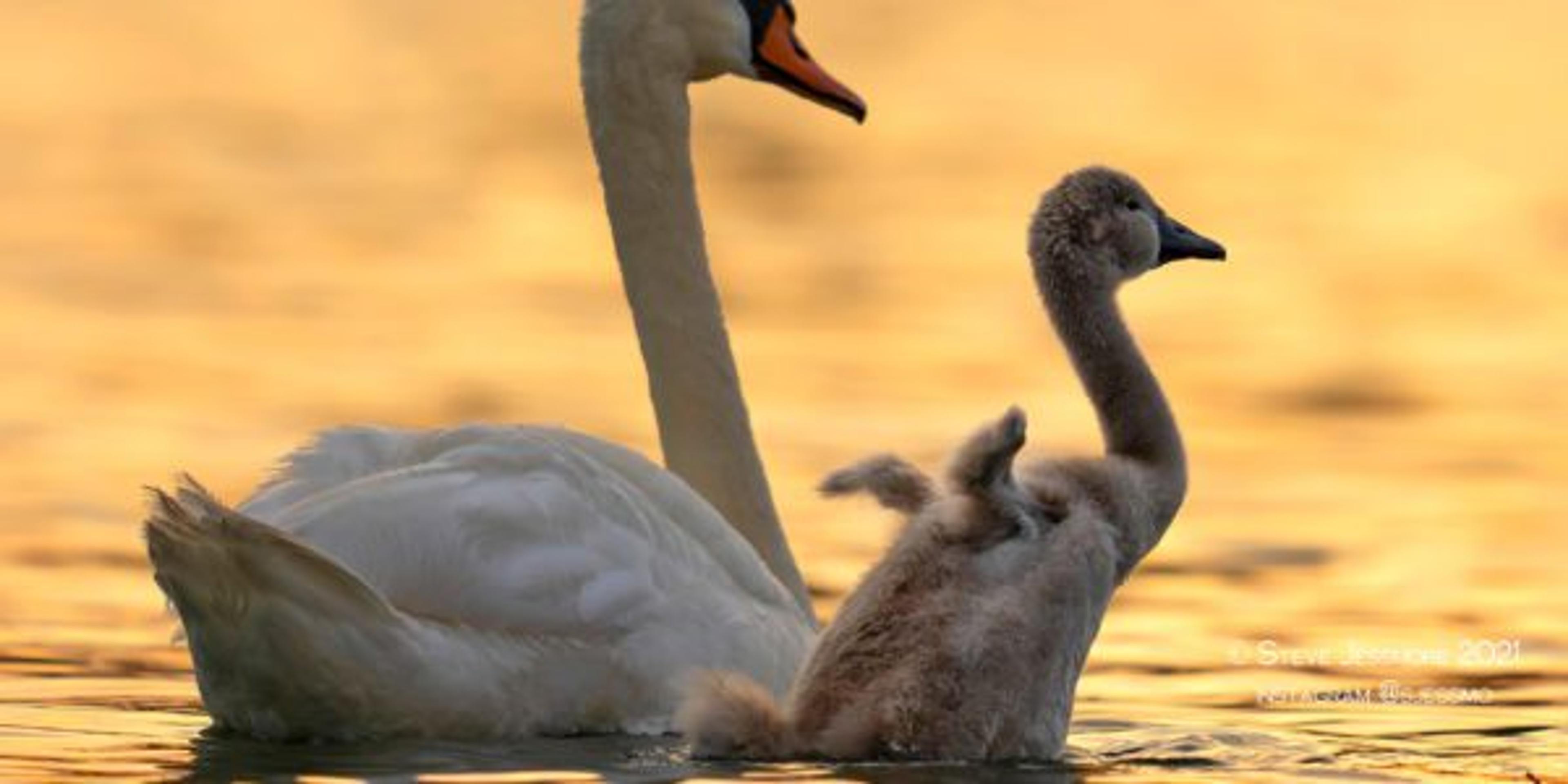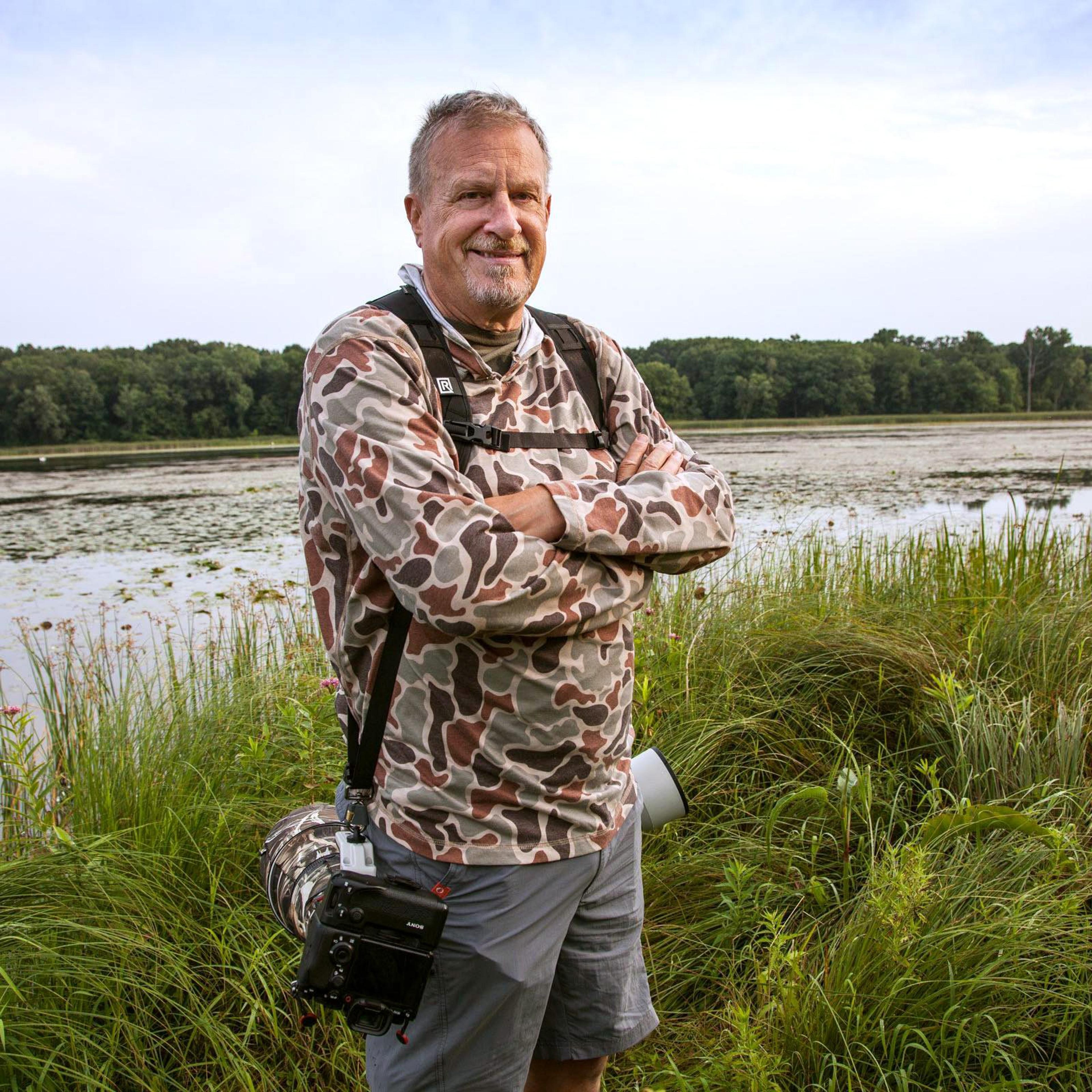Why Birdwatching Brings More Happiness Than Money
Shandra Martinez
| 4 min read

During the pandemic, work-life slowed down for Steve Jessmore. Enough that he took the time to enjoy the birds fluttering around the bird feeder off the back porch of his Alto home. Soon, as he and his wife were isolating at a cottage, he was birdwatching, scouting for more birds from his kayak into the nearby Torch Lake marshes.

Steve Jessmore
His wife’s words that every day is a gift and to make them count began to resonate as he spent more time observing birds. Those hours felt meaningful and he returned home feeling better, mentally and physically.
Jessmore isn’t alone in his experience. Researchers discovered that people who live in natural surroundings, especially in areas with more species of birds, felt better about their lives. That satisfaction surpassed making more money, according to the journal Ecological Economics.
Those conclusions were based on analyzing data from 26,000 adults across 26 European countries, compiled from the 2012 European Quality of Life Survey. Researchers concluded that diversity in nature, especially of birds, had the greatest influence on people’s moods. They were even able to put a number to this bird happiness factor. It’s worth about 10% of people’s income.
Relaxing but challenging
“I’m not distracted by other things. I sit and I notice all the little movements, all the little details, and then I try to capture that and be creative, coming up with a moment that’s a creative composition. I’m constantly challenging myself every day to get better at the technique, and identifying the birds and their habits,” said Jessmore.
He credits birdwatching with transforming his life in the past year. Spending five or six hours in his kayak watching birds is not only relaxing but challenging. As an award-winning photojournalist, Jessmore has made a career of capturing moments. He decided to take that same approach with birds.
“That’s kind of been my mantra: Birds doing something. Birds being birds. I want to show birds living life. They’re hunting or building nests or they’re defending their territory or they’re looking for food. The real challenge for me is just to observe and try to capture the actual action,” said Jessmore, 61, who’s been a freelance photographer since 2018 after working for The Flint Journal, The Saginaw News and Central Michigan University for three decades.
Waiting for the perfect yet fleeting shot keeps him sharp. And constantly learning.
Exhilarating experiences
Others appreciate his work. Even with his first photos, people thanked him for bringing nature to them. “This is like my little piece of sunshine every day,” one admirer told him. Now, he posts regularly on Instagram at sjessmo, where he has followers from around the world.
Jessmore was encouraged to submit his photos for the National Audubon Society photo contest. He entered as a professional despite being new to wildlife photography and swept the professional division.
He often rises before sunrise and spends four to six hours in the morning watching wildlife. He’s started wearing full camo to better blend in. It paid off. He shares that a beaver swam up to the side of the kayak and so did a mallard duck. They were too close to photograph. He remembers when he started he couldn’t get close to the elusive Kingfisher or Sandhill. Now, he sees them a lot.
“Those experiences alone are so exhilarating and calming at the same time. But then I get to capture these cool pictures,” said Jessmore. “Every day is always kind of a surprise and that, to me, is in itself amazing. I think the adrenaline in your body, the excitement — to be able to look forward to something, whether it’s photographing birds or seeing birds — it’s just a really good thing for my body, my health, especially mental health.”
Related:
Photo credit: Steve Jessmore/Bruce Edwards





